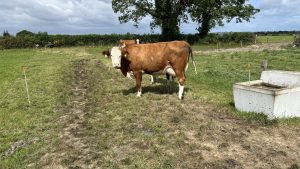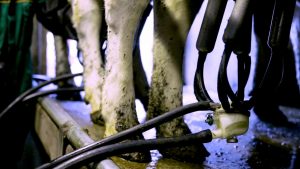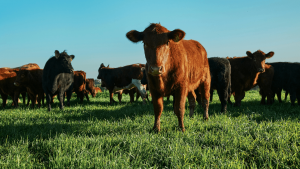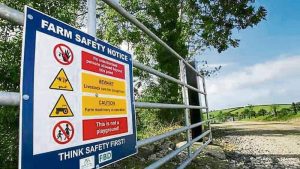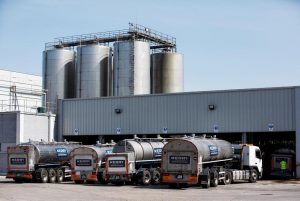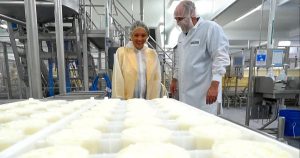
Pat McCormack of the Irish Creamery Milk Suppliers Association (ICMSA) said farming marriages are suffering as farmers come under increasing pressure to try to make any profit.
He warned that some farmers are in danger of being overwhelmed by increased workloads and rising costs.
Mr McCormack said he receives daily phone calls from distraught farmers who signed up for fixed-price schemes and now have their milk price locked in below market value as inflation soars.
Fixed-price schemes can allow farmers to hedge against market volatility, as a minimum price is guaranteed for their produce. But as milk prices and input costs are currently high, those on fixed-price contracts are losing money.
“They might be 15c, 16c off the real price at the moment. They would have forward-sold their milk and be getting 31c/32c/33c while everyone else is getting between 45c and 50c,” he said.
“Some farmers have up to 75% of their milk supply locked in and they’d be badly exposed financially. It’s causing a huge strain.
“We are the family farm organisation and we do have people very concerned about their husbands. It’s an unprecedented period.”
Cork County Councillor Frank Roche said some farmers are so overworked “they have become addicted to their cows” and financial pressures are creating a new form of abuse for farming families.
Farmers’ wives are coming to me saying that their husbands are addicted to cows. The farmers are not abusing them, they’re just ignoring them.
“Women and children are being neglected. These farmers are in debt. They’re working so hard trying to better themselves but the family suffers.
“My fear is that in 10 years we won’t even have many family farms because so many marriages will have broken up, and when marriages break up, families and farms break up.”
Mr McCormack said labour shortages are further exacerbating an already difficult situation for farmers.
“We met with the Department of Agriculture as late as this week to try to get work permits for people to get in,” he said.
I have first-hand knowledge of the difficulty getting reliable labour. The Famer Leave Network has tried but they don’t have the candidates. They’re simply not available.”
Cork dairy farmer and mental health campaigner Peter Hynes agrees that a constricted labour market is worsening the situation for farmers.
With a booming construction industry, finding people to work on a farm is extremely difficult, he said.
Mr Hynes also said an out-of-date work culture, where farmers work extremely long hours seven days a week and never take holidays, is unhealthy and needs reform.
“Farmers need to start viewing themselves as elite athletes,” he said.
“An elite athlete cannot perform at their peak all the time. Farmers need to be able to take a break at any quiet times.
You are not a bad farmer if you finish work at 5.30pm; you’re a very good farmer who can manage their time efficiently.
High suicide rates among the farming community encouraged Mr Hynes and his wife Paula to start the Ag Mental Health Week (October 10–16) to encourage conversations around mental health in farming.
Their campaign saw a receptive dairy industry put the Samaritans helpline on some 500 milk trucks arriving into farmyards across Ireland every day.
Suicide rate
According to CSO figures, 25 farmers die by suicide annually, but Mr Hynes believes this figure may actually be higher.
The suicide rate in farming is higher than in any other occupation and more farmers die by suicide than in farm accidents, he said.
“It’s down to the nature of the job, the long hours, financial pressures and also succession,” said Mr Hynes.
“Who gets the farm? There’s often no real plan or will in place. All you have to do is look at the farmer murder-suicides in Cork in recent years. What did it boil down to? An argument over land.”
Samaritans 24-hour helpline: 116 123.




